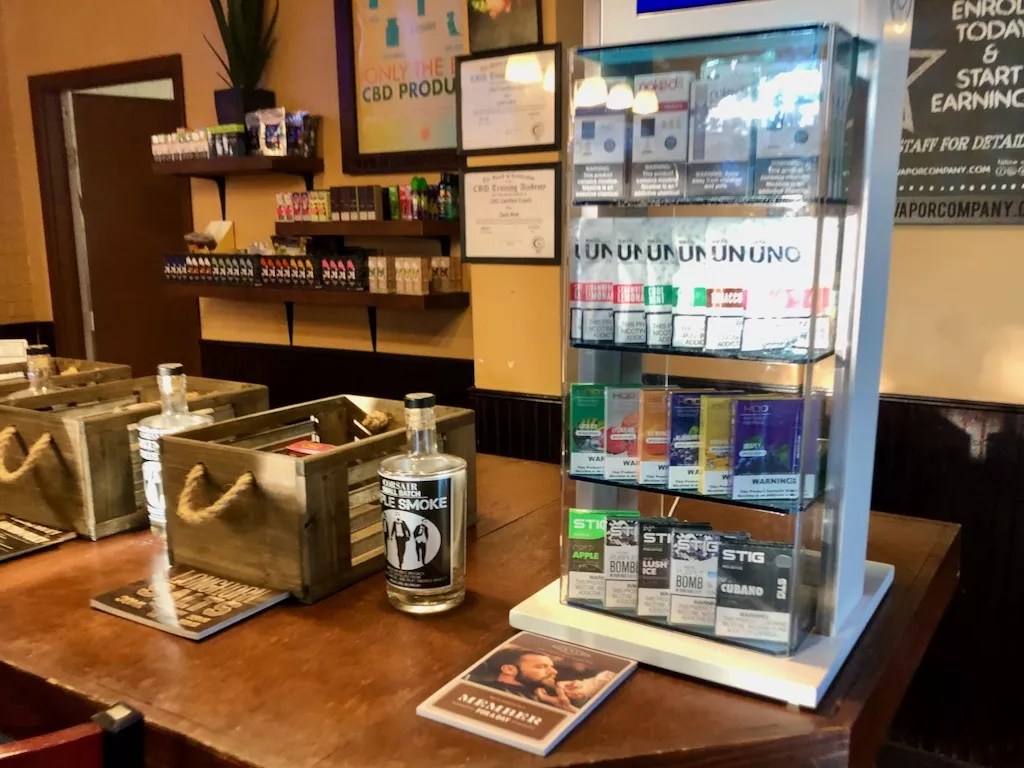
Lucas Manfield

Audio By Carbonatix
Texas’ chief lawyer, Ken Paxton, joined attorneys general from across the country last week in urging the Food and Drug Administration to tighten electronic cigarette regulations. In a letter, co-signed by Paxton, the attorneys sharply criticize the agency’s recent efforts to combat the youth vaping epidemic.
“The current guidance will not decrease e-cigarette use among underage citizens and creates loopholes that manufacturers can exploit,” wrote Paxton in a news release Friday.
The letter, signed by 26 state officials from across the political spectrum, cited the “significant” danger of e-cigarettes, particularly among kids, and called the FDA’s response “inadequate.”
It cited two flaws in the agency’s “enforcement priorities,” which the FDA published in a January “guidance” letter. They don’t apply to menthol-flavored cigarettes or those with replaceable cartridges.
When news happens, Dallas Observer is there —
Your support strengthens our coverage.
We’re aiming to raise $30,000 by December 31, so we can continue covering what matters most to you. If the Dallas Observer matters to you, please take action and contribute today, so when news happens, our reporters can be there.
Juul, the San Francisco company whose slim vape pens with highly concentrated nicotine hits helped launch the industry, stopped selling popular flavors like mango and cucumber last year. But its menthol version, a flavor extracted from mint, remains on the market in most of the United States.
Mint and menthol are the flavors of choice for nearly 64% of U.S. high school students, the FDA has reported. “The two flavors share common characteristics,” reads the attorneys general letter, and manufacturers “will easily be able to evade the Guidance by characterizing mint flavoring as menthol.”
“Both of these consequences should be deeply troubling to the FDA,” it argues.
Meanwhile, as the Observer reported earlier this year, Chinese disposable knockoffs have flooded the market, both in Dallas and nationwide. These vape pens, which come in flavors like pineapple, lemonade and blueberry ice, are nearly identical to Juul’s flagship product. But because these devices have disposable cartridges, they’re not subject to additional FDA scrutiny.
“Creating a loophole that allows refillable cartridge systems and sealed disposables undermines the goals of the Guidance,” reads Paxton’s letter. “The Guidance’s focus on cartridge-based systems will continue to allow the two most popular e-cigarette devices among high school students (after Juul) to operate.”
The vaping industry has faced increased scrutiny in recent years for skyrocketing usage of the devices by teens. Over a third of high school seniors reported vaping in 2018, a 9% rise from the previous year. And nearly a third of them will start smoking within six months, according to the National Institute of Drug Abuse.
The Centers for Disease Control has called it an epidemic and released data showing that a majority of young e-cigarette users prefer flavors like mango or mint. Late last year, President Donald Trump promised “very strong rules and regulations” on flavored e-cigarettes. But he quickly reversed course after talking to industry lobbyists.
“I never should have done this vaping thing,” he reportedly told the nation’s top health official.
The result was a watered-down FDA response that amounted to a letter that “finalizes enforcement policy on unauthorized flavored cartridge-based e-cigarette(s)” but contained no new rules or regulations.
“The FDA’s enforcement priorities are not a ‘ban,'” it read. The FDA’s official position is that recently introduced e-cigarettes are “tobacco products” and, because they have not been pre-approved, are all being marketed illegally. But, so far, it has done little but promise to enforce the policy sometime in the future.
In a statement, the FDA defended its efforts to fight the youth vaping epidemic. “Let us be clear, under this policy, if we see a product that is targeted to kids, we will take action,” it said.
But that hasn’t appeased advocates, who see the continued presence of flavored vaping products on store shelves as proof that, whatever the FDA is doing, it’s not working. “It’s a whack-a-mole strategy the FDA is pursuing, instead of a comprehensive policy,” said Dennis Henigan, director of regulatory affairs at the Campaign for Tobacco-Free Kids.
Texas is launching its own efforts to fight the epidemic. The state raised the tobacco age to 21 last year, and Paxton has taken the lead in investigating allegations that Juul targeted its marketing efforts toward teens.
The same day Paxton released his letter to the FDA, the House passed a ban on all flavors of cigarettes and e-cigarettes, including menthol, with bipartisan support.
A coalition of organizations, including the NAACP and the American Medical Association, have voiced support for the bill. “This legislation will address the current youth e-cigarette epidemic that is undermining the progress made in reducing youth tobacco use,” they wrote in a letter to lawmakers.
It likely won’t matter. The president, according to a White House statement, opposes the bill.